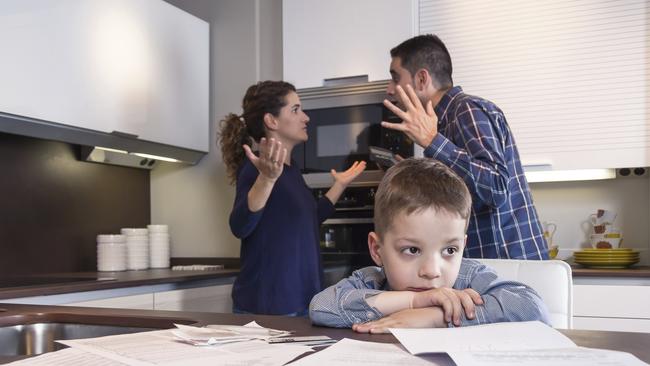‘Help the kids blighted by school refusal’, Senate report reveals
A Senate inquiry has shone a light on the alarming trend of school refusal that is tearing families apart.

A Senate inquiry into “school refusal’’ has called for extra Medicare rebates for child psychology and more flexible schooling for students struggling to attend class.
School attendance has plunged since the Covid-19 pandemic, the inquiry found, with half of all students skipping one in 10 days of school last year.
Warning that crippling anxiety about going to school has driven some children to suicide, the inquiry called for better mental health support and a more flexible approach to traditional teaching.
It revealed that some schools had threatened families with fines and prosecution, instead of offering assistance to get anxious children back to class.
Some parents had divorced due to the pressure, the report reveals, and some children felt they would rather die than go to school.
“School refusal has a profound effect on young people’s health and wellbeing, their sense of self-worth, their connection to friends and family, and their aspirations for life beyond school,’’ the Senate education committee states in its report, tabled on Thursday night.
“The committee heard that many young people require mental health support as a result of school refusal.
“In the worst cases, parents reported instances of self-harm, as well as suicidal ideation and suicide attempts.’’
The inquiry found it was a common misconception in the education and health sectors that school refusal arises “from student misbehaviour or poor parenting’’. School refusal differed from truancy, the inquiry found, and caused “anxiety and shame’’ for children and their families.
“These are young people who want desperately to go to school,’’ the report states. “They want an education, want to succeed, to connect with their peers, share experiences and friendships, and feel a sense of hope and excitement for their future.
“For these young people, however, school itself has become a source of trauma and anxiety – they simply can’t go.’’
The inquiry found that school anxiety was being fuelled by mental health challenges, as well as “neurodivergence’’, bullying or falling behind with school work during the pandemic.
“The committee heard from parents whose bright, happy and engaged child had become anxious, fearful and depressed after starting school,’’ the report states.
The committee called on state and territory governments to review their child health screening programs, for earlier identification of autism, ADHD, anxiety and learning disorders, and to provide extra support.
It suggested that children be granted more than the 10 visits to counsellors or psychologists that can be subsidised by Medicare each year, despite “significant wait times’.
Principals and teachers needed better training to help children struggling with attendance, the inquiry found, and schools needed more specialist staff.
The inquiry revealed parents had been forced to quit work to care for children who were refusing to go to school, causing “emotional strain and financial pressure’’. “Parents and carers reported high levels of stress, exhaustion and social isolation,’’ the report states. “Many have reduced their work hours, or given up work entirely, to support their child.’’
The inquiry found traditional schooling “simply does not appear to work’’ for some children. It called for more flexibility, to let students focus on subjects of interest, attend part-time, or learn from home.
Senators said “a more balanced focus between wellbeing and academic achievement could benefit all students, but particularly those struggling with school refusal’’.
The committee’s chairman, Liberal senator Matt O’Sullivan, said school attendance was key to children’s learning and development.
“If they are unable to attend school, for any reason, there should be alternative pathways made available for them to find a method of schooling that works for them, whether that is through online or virtual learning, or another solution,’’ he said.
Labor senators provided data showing school attendance had been falling even before the pandemic. “Where in 2015, 77.8 per cent of school students attended school 90 per cent of the time, by 2019 – before the Covid pandemic – this had fallen to 73.1 per cent,’’ they wrote. “In 2022, this fell to 49.9 per cent.’’
Kids Helpline 1800 55 1800
Lifeline 13 11 14




To join the conversation, please log in. Don't have an account? Register
Join the conversation, you are commenting as Logout